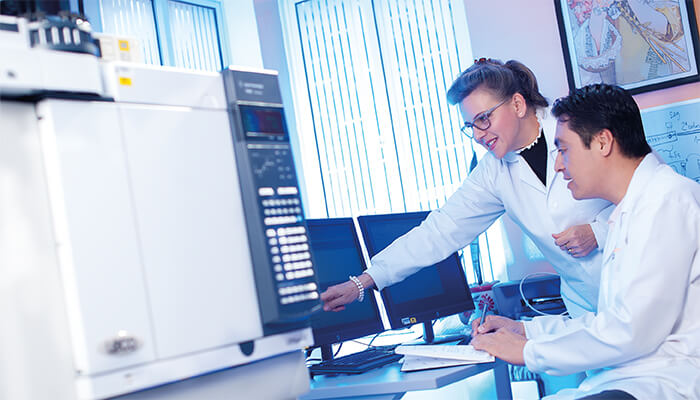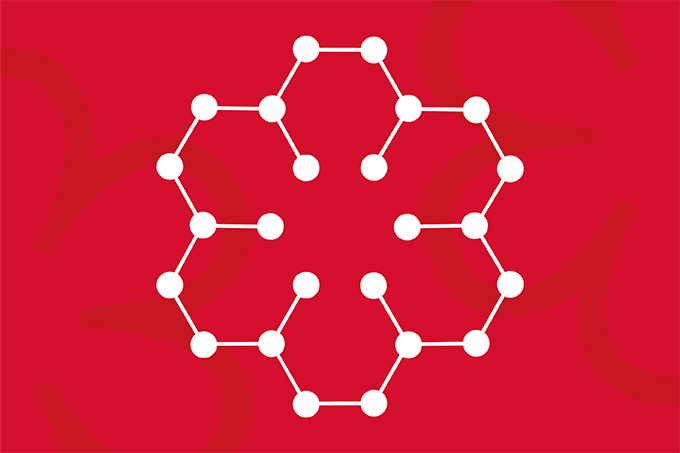The final part of our feature on analytical science in South America focuses on cutting-edge work Colombia. Read Brazil and Chile.
By Elena Stashenko
My research
Our group uses separation science to investigate essential oils and extracts of aromatic plants. We have gradually extended the scope of our work from laboratory experiments to field work with farmers’ associations to examine all the steps of the essential oils value chain. Basic work included the detailed chemical characterization of complex mixtures of secondary metabolites and the determination of various biological activities, mainly antioxidant capacity.
High chromatographic resolution and high mass spectrometric resolution are our key areas of interest, because of their applications in natural products research, environmental, food, forensic and other analyses. Comprehensive chromatography, in particular, is challenging and rewarding.
Notably, some of our projects look likely to result in the development of commercial bioproducts, which will demand a shift in gear towards fractionation and separation at a larger scale. In fact, we plan to create a spin-off company to manage such commercial applications. However, I do not see myself ever becoming a businessperson – I intend to remain a scientist!
Analytical science in Colombia
Analytical chemistry is a core requirement for undergraduate chemistry students in Colombia, but there are also optional higher-level courses on NMR, X-ray diffraction, chromatography, mass spectrometry, electrochemistry and other specialized topics based on analytical methods, such as forensic chemistry. In addition, industry uses universities for their technical and scientific personnel training. For example, at our university, we organize the National School of Chromatography – hands-on training courses for small groups (fewer than 15 people) on topics, such as sample preparation, gas chromatography, GC-MS, experimental design, and applications in food, natural products, environmental and forensic analysis.

Not all universities have sufficient equipment. Most instrumentation is used for research purposes, but there is a growing use in analytical services for industry or other laboratories. The installed infrastructure is not high-end in terms of sensitivity or resolution – there are few high-resolution mass spectrometers, for example. However, although instrumentation is important, I think that the main obstacle is sample preparation. There are many manual steps, subject to variations and errors from the analyst. More automation and higher throughput are needed – and that will represent an increasing focus of our work going forward.
Like several other Latin American countries, Colombia spends an extremely low percentage of its GDP on science and technology – 0.24 percent. A large proportion of these funds was used in the last decade for scholarships to increase the number of PhDs formed both abroad and in Colombia. Very little is left for research projects. Newly minted chemists return to the country from studies abroad and are frustrated by the lack of funding for their projects. The dearth of funding for public universities was the cause of many protests from students and educators during 2018. Unfortunately, science and education are not an ongoing Government priority – they are mentioned during campaigning but are forgotten once elections are over.
Moreover, there are limited cases of investment from industry into academia – and most requests are for assistance on a very narrow, urgent problem. This situation is not helped by the increasing bureaucratization of academia, which is not compatible with the quick answers demanded by industry. However, there are successful partnerships in the area of pesticide residues in coffee and other exported agricultural and meat products.
Looking ahead
To date, the main role for analytical science is in quality control of products for the final consumer. For example, there is illegal gold mining, which causes mercury contamination in streams and rivers. The sophisticated techniques and qualified personnel that allow us to detect these disturbances are not well understood by the public or politicians, however.
I would like to see more focus on herbal medicines and natural products for human consumption, both generated in Colombia and imported. There are cases of counterfeit products, false claims about composition, contamination, and many more problems that require the participation of analytical chemistry. As a stark and worrying example, we know of a company that produces a medicine purporting to be based solely on marigold (Calendula officinalis) extract, but in fact it is based on the prescription drug diclofenac. Other areas that need more attention include the control of pesticide use, air or water contamination and oil spills.
When I arrived in Colombia, close to 40 years ago, there were one or two GC-MS systems in the whole country. Today, we have over 1,500 gas and liquid chromatographs in universities and industry. There are several world-class laboratories, equipped with high-resolution GC-MS, LC-MS, NMR and X-ray diffraction, and the work being done at these centers demonstrates the great value of analytical science in the future development of the country.
Where Next?
This article is the start of an ongoing series highlighting the achievements of analytical scientists in different regions, particularly areas that are under-represented at conferences, in journals – and in our own Power List. We’d love to hear where you think we should turn our spotlight next – email charlotte.barker@texerepublishing.com or leave a comment online.




